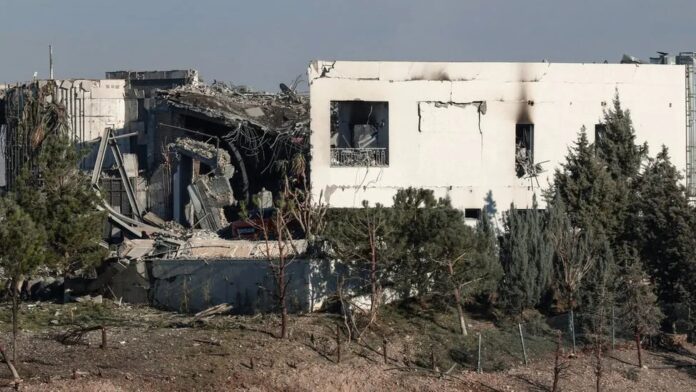Iran’s Revolutionary Guards launched ballistic missile strikes on Iraq’s northern city of Irbil, drawing swift condemnation from the United States and triggering a diplomatic fallout between Iraq and Iran.
The Strikes and Their Targets
The missile strikes carried out on Monday night, targeted civilian-populated areas in Irbil, leading to the tragic death of four civilians and injuries to six others, according to local authorities.
The Revolutionary Guards claimed to have struck an alleged Israeli “spy headquarters” in Iraq’s Kurdistan Region, accusing Israel of recent actions that prompted the attack.
International Response
The United States swiftly condemned the missile strikes, describing them as “reckless and imprecise.”
Adrienne Watson, a White House National Security Council spokesperson, stated, “The United States supports the sovereignty, independence, and territorial integrity of Iraq.” The US emphasized that no American personnel or facilities were targeted in the attacks.
Iraq recalled its ambassador from Tehran in response to what it termed a “blatant violation” of its sovereignty.
The Iraqi government denounced the Iranian aggression, forming an investigative committee to challenge Iran’s claims and expressing intent to file a complaint with the UN Security Council.
Rising Tensions Across the Region
The missile strikes come amid heightened tensions in the Middle East, triggered by the conflict between Israel and the Iran-backed Palestinian group Hamas in the Gaza Strip.
Iran, while declaring a reluctance to engage in a broader conflict, has seen groups in its “Axis of Resistance” launch attacks on Israel and its allies.
Recent incidents include Lebanon’s Hezbollah engaging in cross-border fire with Israeli forces, Shia militias launching attacks on US forces in Iraq and Syria, and Yemen’s Houthi rebels targeting ships in the Red Sea.
Israel has reportedly conducted strikes in Lebanon and Syria, while the US has carried out airstrikes in Iraq and bombed Houthi targets in Yemen.
Previous Escalations and Denials
This is not the first time Iran’s Revolutionary Guards have launched missile attacks on Irbil. In 2022, they claimed a similar attack on what they alleged to be an Israeli “strategic centre” in the region.
The Revolutionary Guards have previously targeted bases of Iranian Kurdish opposition groups and asserted their retaliation against perceived threats.
International Calls for Dialogue
The UN mission in Iraq emphasized the need to halt attacks violating Iraqi sovereignty and territorial integrity, urging that security concerns should be addressed through dialogue rather than military actions.
The international community is concerned about the escalation of hostilities and the potential impact on regional stability.
Other Fronts: Strikes in Syria
In addition to the attacks on Irbil, the Revolutionary Guards claimed to have targeted “terrorist bases” in Syria in response to a recent suicide bombing in Iran, claimed by the Islamic State (IS) group.
The Syrian Observatory for Human Rights reported explosions in areas controlled by Iran-backed militias, though the exact locations remain unclear.
Domestic Condemnation in Iraq and Kurdistan
Within Iraq, the Kurdistan Region’s Prime Minister, Masrour Barzani, condemned the “cowardly attack” and called on the federal government in Baghdad to take a principled position against the violation of Iraq’s and the Kurdistan Region’s sovereignty.
The Kurdistan Region Security Council rejected Iran’s claims, accusing the Revolutionary Guards of using baseless pretexts for assaulting Irbil.
Conclusion
As the international community closely watches the fallout from these missile strikes, the situation in the Middle East remains highly volatile.
The incidents in Irbil and Syria underscore the complexity of regional dynamics and the challenges of maintaining stability in the face of longstanding tensions.
Diplomatic efforts and dialogue are crucial to preventing further escalation and fostering a peaceful resolution to the ongoing conflicts.
This article was created using automation technology and was thoroughly edited and fact-checked by one of our editorial staff members

